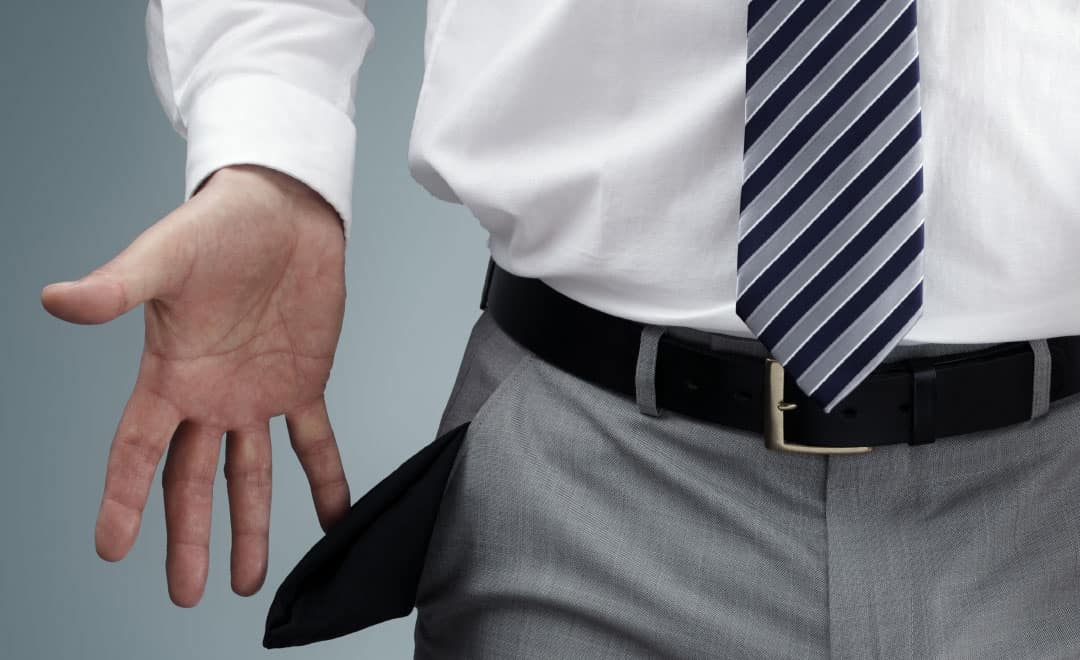The COVID-19 pandemic has caused an interruption in income for many—not just business owners, but for families as well. It’s nearly safe to say no one expected for cash flow to dry up across the board. While the market has recovered the majority of what it initially lost, businesses and individual investors are still in survival mode.
Regardless if you’re a business or household, the answer to survival is no different. We believe it starts by establishing an emergency fund, which should generally precede the expansion of your business or decision to invest. The fund should consist of liquid assets that are accessible without penalty or excessive tax that you can use to pay expenses, and should typically amount to around three to six months’ worth of expenses. This will enable you to pay the rent, utilities, and keep your dependents cared for, whether they’re your own children or your employees.
For households, if there is only one spouse working, we recommend six months’ worth of expenses. If both spouses work, many times three months of expenses will do. For businesses, having that cash flow is critical as well. When the economy shifts and income is no longer guaranteed, you need to be able to have a cushion to fall back on. Once you have that cushion, you have options like reducing your expenses or looking for other ways to bring in money. That could be cutting extracurriculars like social clubs or a new or second job for an individual, or for a business, cutting part-time workers or developing a new line of products or services for a business.
An emergency fund is critical in helping to avoid taking on debt or being forced to access retirement savings during times of uncertainty, and it can also help to ensure that you aren’t having to make decisions you shouldn’t because you’re under stress. While tapping your retirement funds is an option, accessing this money can create undesirable tax consequences and penalties.
When cash flow is uncertain, you need to control your expenses. For individuals, we often recommend looking at refinancing their home. Mortgage rates are at extreme lows with the national average around carrying 3.5% interest. Homes are also at some of their highest appraisals. Locally, we have seen around a $10,000 increase in appraisals from a year ago. We’ve had clients refinance, pulling out their cash equity, lowering their interest rate only half a percent and were able to keep their monthly payment about the same. The cash can then be used to sustain your household or small business through tough economic times.
As part of the planning process, we also recommend investors and businesses have their insurance coverages in place, including disability or key employee policies. It is much more likely for an individual to suffer a disability than to die. Furthermore, the disability may bring on additional expenses in addition to your current obligations.
One of the final steps for surviving an economic hardship is diversification of your assets. For example, if you or your small business are in an industry that is sensitive to the economy, such as a home builder, you should consider investments in Consumer Staples or Healthcare that can help hedge against losses in Industrials. Some investment choices are not meant to achieve 10% growth year after year. Some are purely meant to lower the risk across all your investments, including your business.
Individuals and businesses shouldn’t rely on the government to be there with a bailout every time the economy comes to a halt. Having a cushion and controlling your cash flow are essential steps for success even in the best economic times. Financial planning with this in mind can help you feel as secure in bad times as you do in times when the market is strong.
If you have questions on planning for the uncertain times, the experts at Henssler Financial will be glad to help:
- Experts Request Form
- Email: experts@henssler.com
- Phone: 770-429-9166







